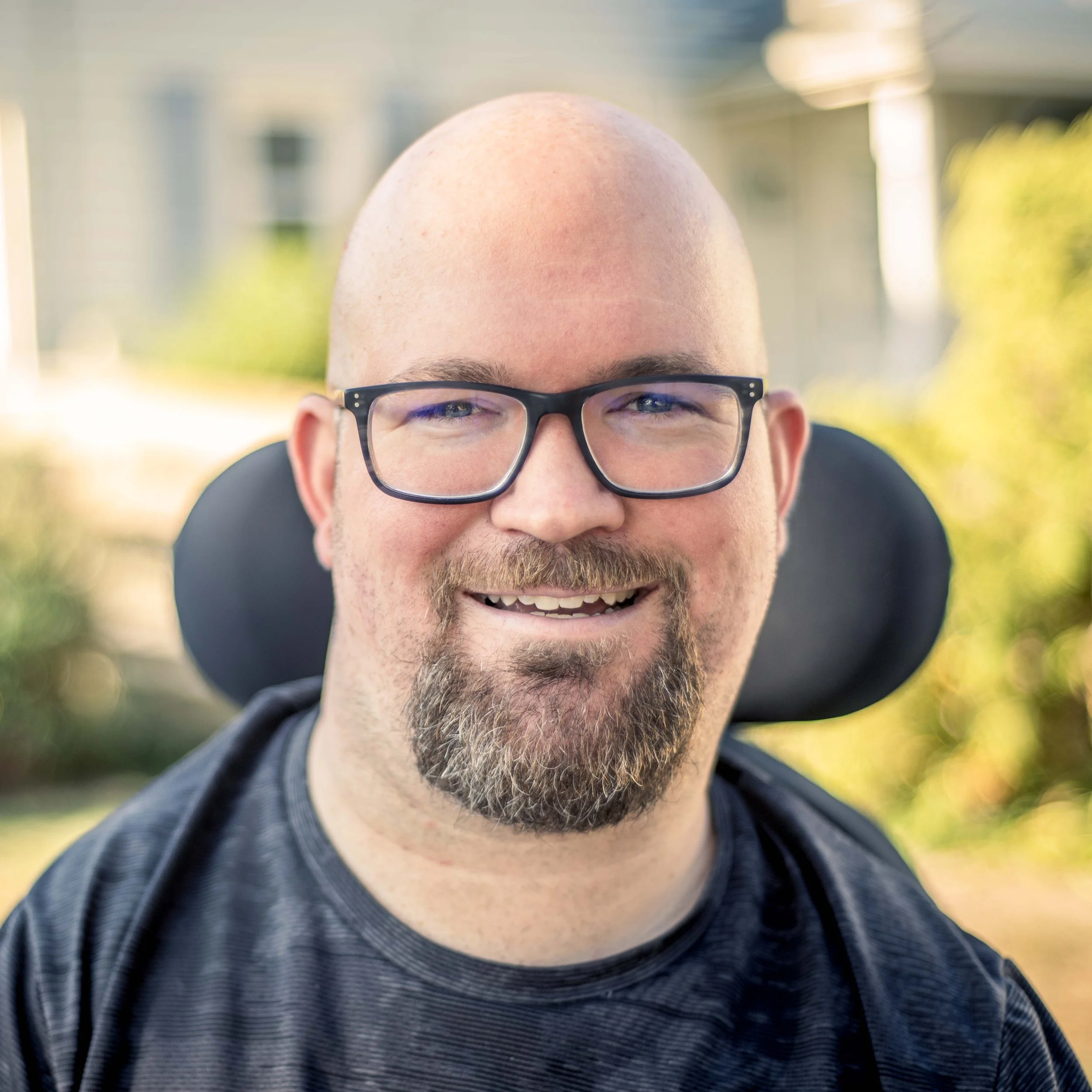Dan was first photographed during the Stay at Home Order outside of his employer’s building, Job and Family Services, where was a Case Management Specialist II. In late 2021, his employers were requiring staff to work in the office. Dan requested to work from home full time, which he was eventually granted. “There were too many hoops to jump through and HR was not cooperative,” he said. “It was draining and tiring, I didn’t feel valued.”
On a personal level, Dan spoke about the challenges of isolation during the pandemic. “It was very isolating. I can’t drive, there weren’t social events, there was nowhere to go. It limited my dining out, which was and is a dominant part of my personality. I also didn’t want to get my grandparents or my mom sick. I relied on social media and other online avenues of communication like fantasy sports and video calls.
In early 2022, Dan began working for Opportunities for Ohioans with Disabilities as a Case Load Assistant. He assists multiple counselors in a variety of ways; making sure cases are in compliance with state and federal guidelines, helping with outreach, and more. Dan has also completed a leadership program through this work. At the time, the employees were in a hybrid work-flow and were able to downsize to a smaller office space. That all changed in early 2025 when Governor DeWine made an executive order that all government workers must return to the office full time.
“There were certain stipulations that would allow people to work from home,” Dan said. “My mom is my main support system, caregiver, and means of transportation, but she was diagnosed with brain cancer in 2024, can no longer drive and has had other limitations.” While it took some effort to get approval, Dan is able to work from home full time. As his mother’s brain cancer has progressed, Dan is able to be at home with her while still working. “It’s been an unfathomable hell forced on my mom and our family. Unfortunately, treatment is no longer working. We now brace for the inevitable over the coming months.”
Dan gave his perspective of the pandemic: “Virtual workplaces have been a big advantage coming out of the pandemic. Video meetings and teledoc appointments are the norm now. It existed before, but now it is much more accepted.
As a person who has transportation limitations, widely available at-home delivery options are a big service to point out as a result of the pandemic. The ability to have groceries delivered to the house is huge. Some people want to put all of this back in the box and go back to the way things were, but I’m relieved this accessibility is more prevalent and normal than ever.”
Despite these improvements, Dan said that physical accessibility has remained generally the same in Akron. The lack of accessibility in parking in Highland Square is still prevalent, making it nearly impossible to enjoy the shops and restaurants, especially as the main parking lot continues to be blocked off by the city at night.
As Dan reflected back to the first portrait captured in this series, he mentioned: “It was cool to feel involved in something when the world was shut down. In retrospect it’s like being a part of Akron history. It was something cool when nothing else was going on. It provided a little bit of spark and hope. Also, I’m glad I grew facial hair since the first picture was taken, my face is gonna look a lot better in the Postscript portrait.”
—
Pandemic Postscript dedicated to Theresa Plappert. 06/21/1962 - 09/08/2025
March, 2020
Summit County Job & Family Services

